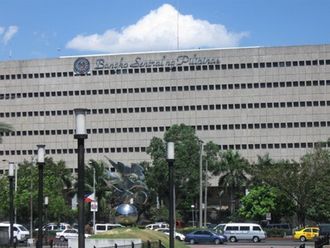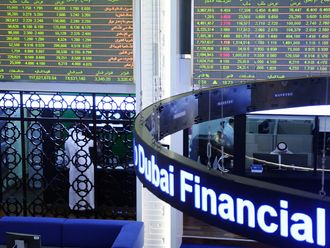Every year I meet with the person I refer to as “The Smartest Man in Europe.” In my mind he earned that title by seeing major shifts in the investment landscape long before his peers on both sides of the Atlantic. Among these were the rise and fall of the Japanese stock market in the 1980s, the end of the command economies in Russia and China, the opportunities afforded by the emerging economies and the importance of gold as an asset class. Dinner table conversation from the time he was a young boy centered around investment opportunities. In his ninth decade he still derives excitement from a fresh idea, and it is inspiring to watch.
“Everyone thinks Europe is hopeless and I can understand why. The European Union (EU) is a flawed concept and it may not survive in the long run.
There needs to be more convergence, both economic (which is possible) and political (which is impossible), but a major change in attitude has taken place this year. Until recently, policy makers believed that increasing taxes and reducing spending was needed for the weaker countries to solve their deficit problems, but that was clearly the wrong idea.
From a political point of view the austerity approach was impossible because the people in these places wouldn’t accept what their governments were trying to impose on them. Europe was in a recession and the austerity policies were making conditions worse. Unemployment was becoming a serious social problem and job creation had to be a priority. As we moved into this year, policy makers began to understand that austerity was the wrong course and that restoring growth had to be an objective.
“I think current conditions in Europe might drive the United Kingdom (UK) out of the EU.
France and Germany might want more transparency on taxes. The UK has the opportunity to become even more of a tax haven than it is now. Business conditions in the UK aren’t good and the prospects for major economic improvement are dim, but if they adopted a more friendly policy toward wealthy foreigners, there could be a huge boom. There is tremendous pent-up demand in Europe and I think you could see positive growth in 2014.
“The important factor is that almost no investor likes Europe now and that enhances the opportunity. Two years ago everyone was worried that the EU was going to break apart.
That was never going to happen over the near term because everyone had too much to lose, especially Germany, which has been the biggest beneficiary. Now most people realize Europe is going to muddle through at least for a while, but few people are buying European stocks to take advantage of this conclusion.
“The charm that gold held over investors is broken. Central banks in the developed world — the US, Europe and Japan — are still printing money and demeaning their currencies so you would expect that something real, as gold is perceived to be, would increase in value.
You have to ask yourself the question: Where did all the gold that was sold this year go? The answer is Asia, primarily India and China.
The people who bought it are going to hold it, not trade it. Next year, when interest in gold picks up again because of the continued expansive policies of the major central banks, gold will be in short supply and the price will rise, perhaps as sharply as it fell. On currencies I expect the Swiss franc to stabilize around current levels and the euro to strengthen against the dollar.
“The situation in the Middle East is troubling from a humanitarian standpoint but Bashar Al Assad will probably endure. Most Westerners thought he would not last this long, but he has the support of the Christian population, the Alawites, business, the army and Iran. The rebels are getting help from Sunnis in the region who view Syria as a buffer against Shiite Iran. I think Iran will eventually have a nuclear weapon. Israel will not bomb the country because Iran is in a position to send too many missiles in retaliation and the destruction and loss of life would be devastating. The US policy toward Iran is more unpredictable in my opinion.
“The major geopolitical problem in the world today is that the US doesn’t have a coherent foreign policy. It has the most powerful military force in the world but it cannot decide whether to use it. Does it want to be the leader of the free world or not? How does it define its self-interest?
I think the wars with Iraq and Afghanistan were lost before they began. It is naïve to think you can bring democracies into these countries when they have been torn by tribal factions for centuries.
You need a powerful leader, a dictator if you will, to run these places and the United States cannot bring itself to support that. Americans have to ask themselves whether they are in a better position since the Arab Spring came to Egypt than they were when it was under Mubarak’s rule.
“The US cannot simply walk away from the Middle East because if it does, the Russians will step in and become the dominant western power. The region is likely to remain volatile and in continued conflict. In the Middle East, power is not hamstrung by humanitarian considerations.
Maliki is a de facto dictator and Iraq is thriving economically. Karzai is another example of a powerful leader who has built a supportive cadre around him. The US pursued policies in the region based on its need for an assured supply of oil, but now that America is headed toward energy self-sufficiency, its strategy in the region may change.
In any case, don’t worry about Iran having the bomb. Mutually assured destruction is an important deterrent.
“The real problem in the US is that Obama is an intellectual president and he doesn’t seem to understand the importance and usage of power.
He thinks if he has a good idea, everyone should follow him by bringing the idea into reality. But the world doesn’t work that way and if he is going to progress in his second term, he has to sell the opposition on his views. In foreign policy, he must be willing to use American power more forcefully.
Once he starts something he has to finish it. He didn’t do that in Iraq and Afghanistan and that is why he failed.
As usual I didn’t find myself in agreement with all of his ideas, but the discussion was wide-ranging and his positions were clear. I vowed to myself that I would take a hard look at European equities before the summer began. Year after year he always has something provocative and important to say.
— Byron Wein is Vice-Chairman of Blackstone Advisory Partners











